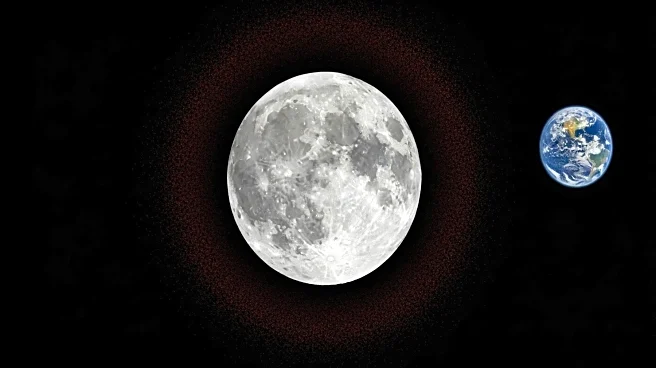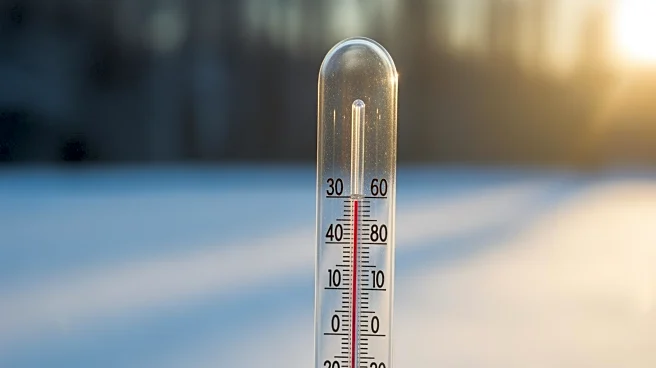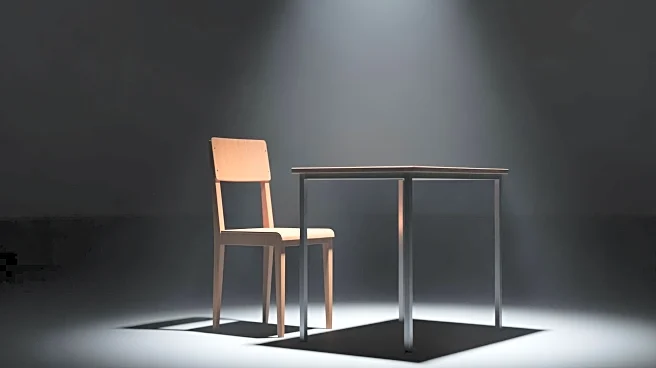What's Happening?
Recent scientific findings have revealed that the Moon is rusting due to particles from Earth's atmosphere. Researchers, including Ziliang Jin from Macau University of Science and Technology, have discovered that oxygen particles blown from Earth to the Moon can transform lunar minerals into haematite, commonly known as rust. This phenomenon occurs during a period each month when Earth blocks solar particles from reaching the Moon, allowing Earth's atmospheric particles to interact with lunar soil. The study, published in Geophysical Research Letters, highlights the deep interconnection between Earth and the Moon, suggesting that the Moon records geological interactions with Earth. The discovery was initially prompted by observations from India's Chandrayaan-1 mission, which detected haematite near the Moon's poles, despite the Moon's environment lacking the necessary oxygen for rust formation.
Why It's Important?
This discovery is significant as it provides insight into the complex relationship between Earth and the Moon, offering a new perspective on lunar geology. The presence of haematite on the Moon, facilitated by Earth's atmospheric particles, challenges previous assumptions about the Moon's chemical environment and its ability to host such minerals. Understanding these interactions can enhance scientific knowledge about planetary processes and the history of celestial bodies. Additionally, this finding may influence future lunar exploration missions, as it underscores the importance of considering Earth's impact on the Moon's surface chemistry.
What's Next?
Further research is likely to focus on the implications of Earth's atmospheric particles on lunar geology and the potential for similar interactions on other celestial bodies. Scientists may conduct additional experiments to simulate Earth wind conditions and study their effects on lunar minerals. This could lead to a deeper understanding of the Moon's geological history and its ongoing interactions with Earth. Moreover, space agencies might consider these findings when planning future lunar missions, potentially adjusting exploration strategies to account for Earth's influence on the Moon's surface.
Beyond the Headlines
The discovery of Earth's atmospheric particles causing rust on the Moon raises questions about the ethical and environmental implications of human activity on celestial bodies. As space exploration advances, understanding the unintended consequences of Earth's influence on other planets becomes crucial. This finding may prompt discussions on the preservation of extraterrestrial environments and the responsibilities of space-faring nations in minimizing their impact on the cosmos.








